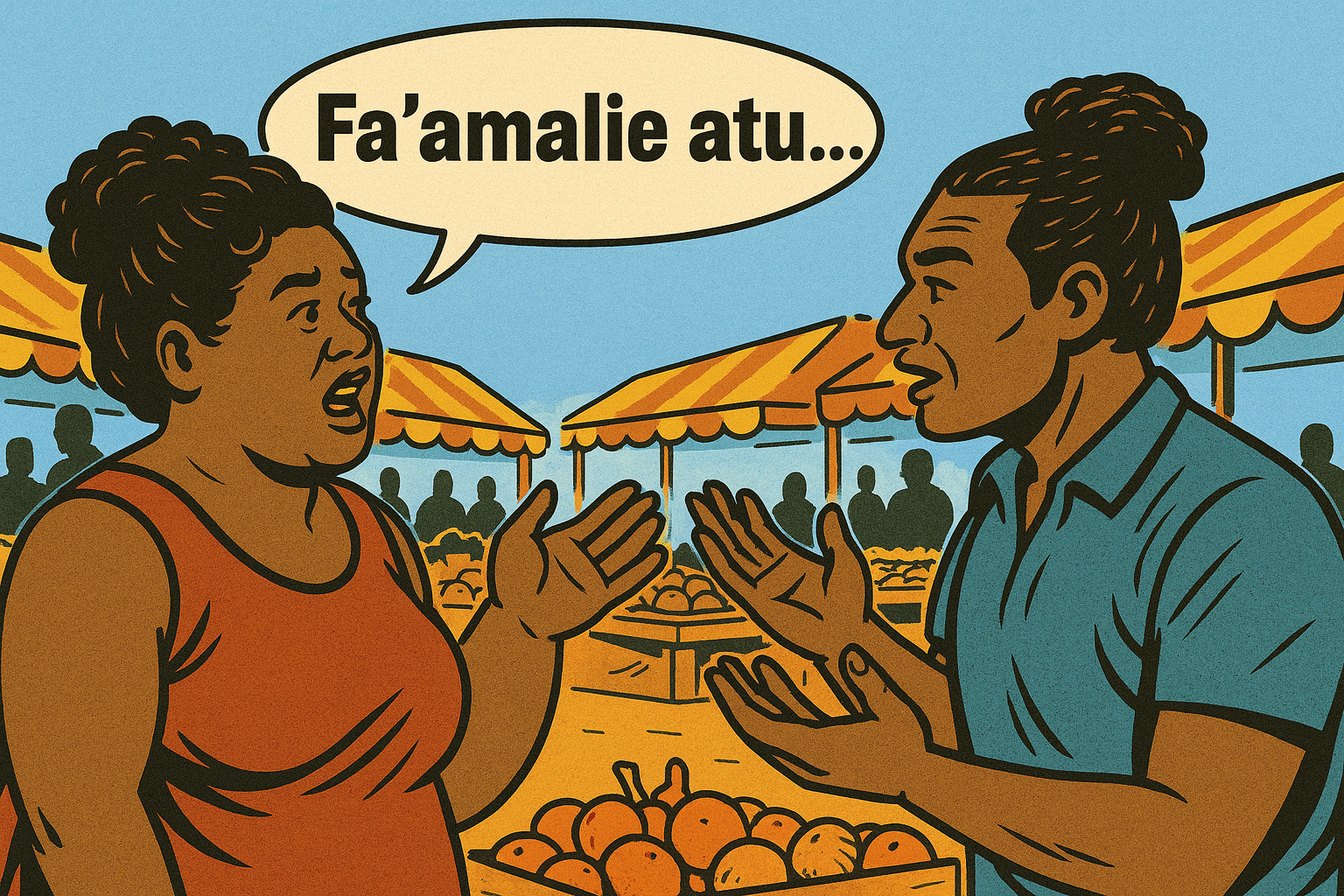More Useful Samoan Phrases for When You’re Beginning to Learn Samoan
Probably the best way to learn a new language is to get right in there from the start and use your new language with people who already know it.
Because Samoan is our heritage language (i.e. the language of our parents and ancestors), it’s very likely that we’ll know at least one native Samoan speaker… but it’s also very likely that we are too shy or insecure to initiate a conversation in Samoan with that person, especially because it’s also very likely that that person speaks English, too.
I know this feeling well… but my problem is further complicated by the fact that my Samoan speaking family are also pretty loose with the good natured(?) teasing. It’s not easy to be a happy learner when you’re embarrassed.
But I persevere!
And I’ve found that a good strategy for facing the Samoan speakers in my life is to do my homework…to get really good at saying key phrases so that when we switch to Samoan, I sound prepared and can help steer the conversation.
I’m also secretly hoping that I can impress them so much with my well-executed phrases that they forget to mock me about anything else. (One can hope).
Anyway, we’ve already talked about a few useful Samoan phrases for very early beginners.
Here are a few more phrases for when you’re ready to take your Samoan conversations to the next level:
Apologize or Excuse Yourself
Fa’amalie atu… is our phrase for ‘I’m sorry’ or ‘Excuse me’.
The literal meaning of fa’amalie is to create ease (or satisfaction), and atu is like a gesture away from the speaker. So we use this phrase fa’amalie atu for when we want to appease the person we’re speaking to.
Say You Don’t Understand
Malamalama is our word for understand. To express that you DO understand something, you can say, ou te malamalama.
We negate our statements with the word le, which (in this case) means not. So to express that we DO NOT understand something, we add the le just before malamalama.
Ask Someone to Repeat Something
Until we get used to listening to the Samoan language, we’re probably going to need people to repeat themselves. We can say: Toe fai mai lau tala, fa’amolemole.
Toe fai mai means to say something again, lau tala means your words (or comments, or story, etc.), so you can ask someone to repeat themselves by saying: Toe fai mai lau tala, but that sentence by itself sounds pretty blunt.
To soften your request, you should also add the word, ‘please’, or fa’amolemole.
Ask for the meaning of a Samoan word
During your conversation with a Samoan speaker, you’ll probably hear several words that you don’t quite know yet. For example, let’s say your friend drops the word fa’amagalo, and let’s say you don’t know that word.
You can ask: O le a le uiga o le fa’amagalo?
O le a le uiga o le is how we say, ‘what is the meaning of the..?’ And then you add the word that you don’t know.
Let’s say you’re not quite sure how to pronounce the word you just heard. You can keep your question generic and ask: O le a le uiga o le upu lea? …where upu lea means ‘this word’.
Ask someone to slow down
This phrase might be the trickiest to pronounce, but let’s give it a go.
When you’re new to a language, you’re going to need people to slow down for you. A polite way to ask that is: E mafai ona fa’atelegese lau tautala?
E mafai is asking if something is possible (as in, can you…?) ona fa’atelegese means ‘to make something slower’ and lau tautala is ‘your speaking’.
A quick word about pronunciation
You might notice in all our audio samples here that there’s a unique kinda tonality to questions in the Samoan language. It’s like a song, where we start at a medium sorta pitch then we go up to a higher pitch and then end back at the place where we started.
Check out this question and listen for the ‘melody’ in how we phrase it:
I know I said earlier that this sentence sounds pretty blunt, that’s why we should add the word fa’amolemole (please)…
But if you make sure you’re phrasing this request with a very melodic, sweet sounding rise then fall in your tone (even sweeter than I sound in this recording), you should be able to make it sound polite, even without the please.

